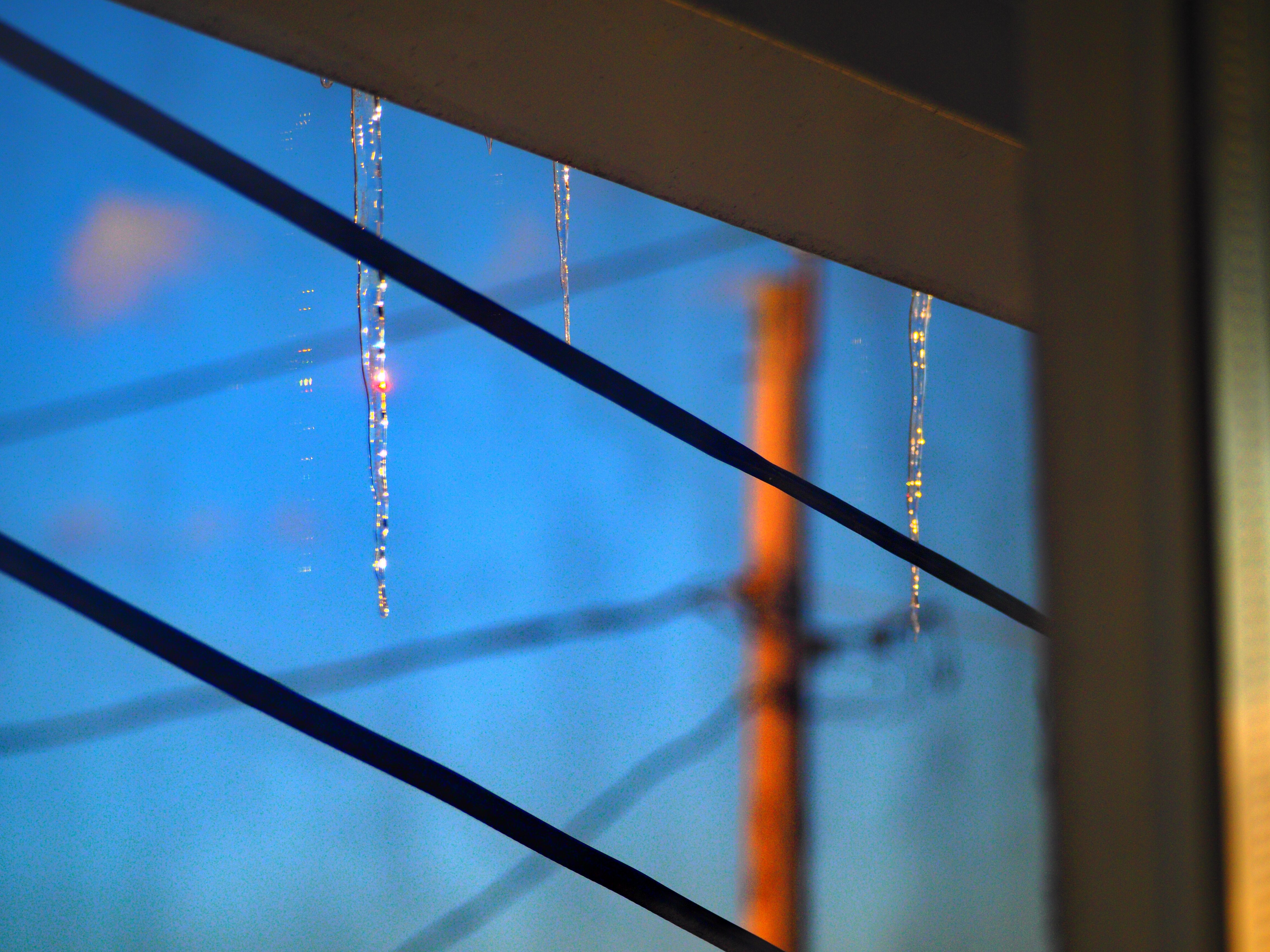-
Posts
44,789 -
Joined
Content Type
Profiles
Blogs
Forums
American Weather
Media Demo
Store
Gallery
Everything posted by LibertyBell
-

September 2025 OBS-Discussion centered NYC subforum
LibertyBell replied to wdrag's topic in New York City Metro
As I said MANY weeks ago, summer basically came to an end after mid August. -

Winter cancelled/uncancelled banter 25/26
LibertyBell replied to Rjay's topic in New York City Metro
I liked that it didn't rain much (although it did rain last weekend.) -

Occasional Thoughts on Climate Change
LibertyBell replied to donsutherland1's topic in Climate Change
Areas in the Arctic will also be opened up to farming and other activities. Have to look at all sides. -

Occasional Thoughts on Climate Change
LibertyBell replied to donsutherland1's topic in Climate Change
I don't see it as people not believing it's happening, the vast majority of people know it's happening, they just have many other concerns that matter more to them. Or they actually want warmer weather (especially in the winter.) -

Occasional Thoughts on Climate Change
LibertyBell replied to donsutherland1's topic in Climate Change
It's probably not an existential threat unless you're talking about island nations. Don, we are moving towards more renewable fuels, but at a slower pace than most would like. We'll get there eventually. I would mention to guess at least part of the inertia comes from a majority of people actually liking or wanting warmer temperatures in the winter. -

Occasional Thoughts on Climate Change
LibertyBell replied to donsutherland1's topic in Climate Change
a dew point of 50 is very low, let's take a much more likely scenario.... in August 1918 New York City recorded an all time monthly high of 104 degrees, what was the dew point on that day when the temperature was 104 degrees? Probably somewhere between 65-70 if I would guess. Compare that to the typical August day we get now, it rarely gets higher than 90-95 in August anymore and this year the highest temperature was only 86 =\ -
The 1944 hurricane was extremely underrated, it was a Great Hurricane that came after a Historic Summer. Great Atlantic Hurricane (Sept. 1944) There's a good reason why New Jersey State Climatologist David Robinson calls the Great Atlantic Hurricane "the worst hurricane ever to hit New Jersey in the 20th century." The damage unleashed by this storm was devastating along the entire coastline, with hundreds of homes on Long Beach Island washed out to sea and huge piers in Atlantic City split up into pieces. A resident who witnessed the 1944 destruction in Atlantic City told The Star-Ledger decades later: "It picked up the boardwalk like toothpicks and threw it.” (Photos by New Jersey State Police | NJ State Library) Len Melisurgo | NJ Advance Media for NJ.com Great Atlantic Hurricane (Sept. 1944) This hurricane was so powerful that it swept large boats and barges onto land in Atlantic Highlands, grounded a large passenger boat in Keyport, crushed roads and sections of the boardwalk in Long Branch and destroyed the boardwalk and sea wall in Margate. (Photos by New Jersey State Police and U.S. Navy | NJ State Library) More rare photos of the Great Atlantic Hurricane of 1944 Len Melisurgo | NJ Advance Media for NJ.com Great Atlantic Hurricane (Sept. 1944) The 1944 storm was ferocious, blasting the Jersey Shore with winds as strong as 96 mph and waves reported to be as high as 25 to 30 feet. Hundreds of homes were destroyed on Long Beach Island and hundreds more on the Barnegat Peninsula. On LBI, the hurricane’s storm surge pushed vacation cottages off their foundations and deposited them blocks away. In Manasquan, the storm left 6-foot sand dunes along First Avenue, looking like snowdrifts. In Cape May, the grand piano in Convention Hall was reportedly washed out to sea. (YouTube video by wetwatervideo) Len Melisurgo | NJ Advance Media for NJ.com Great Atlantic Hurricane (Sept. 1944) This video recounts the widespread destruction in Atlantic City. One witness says parts of the city were under 5 feet of water and he watched the ocean surge rip apart large sections of the Atlantic City boardwalk. (YouTube video by pcctv1)
-
1903 also had a very strong hurricane that took a path close to the city, what category was this storm? Great Hurricane (Sept. 1903) The Great Hurricane of 1903 made a direct hit on New Jersey, causing heavy flooding and structural damage up and down the Shore and as far inland as Trenton (pictured here in a major flood that followed the storm). Among the damage reported by Shore News Today: “Hurricane-force winds downed telephone and telegraph wires across the coast, ripped the roofs off of 60 cottages and destroyed the railroad bridge to Brigantine. Most Jersey Shore fishing piers were severely damaged or destroyed.” (Photo credit: Trentoniana collection | Trenton Public Library) Len Melisurgo | NJ Advance Media for NJ.com Great Hurricane (Sept. 1903) The Great Hurricane of 1903 made a direct hit on New Jersey, causing substantial damage to houses and barns, many of which had their roofs blown off, according to a report by NorthShoreWX.com. The storm’s ferocious winds reportedly uprooted scores of shade trees and fruit trees across the Garden State. In Sea Bright, some houses were completely destroyed by this hurricane, the New York Daily News reported. Pictured is an old map showing the storm's path. (Photo credit: NOAA)
-
Wow the 1821 storm makes the much publicized 1938 storm sound like a small gale. Norfolk - Long Island Hurricane (Sept. 1821) This massive storm, known as the Norfolk and Long Island Hurricane of 1821, churned its way up the Atlantic coast from Virginia and slammed into Cape May in southern New Jersey as a fierce Category 3 hurricane before speeding up along the Jersey coast and pounding New York City and Long Island. Damage was reported to be heavy in Cape May, where a 5-foot storm surge flooded the small resort city and sustained winds were believed to be as high as 110 mph. This map, produced by the Swiss Re global reinsurance company, shows the storm's likely path. (Swiss Re) Len Melisurgo | NJ Advance Media for NJ.com Norfolk - Long Island Hurricane (Sept. 1821) This graphic shows the intense winds generated by the Norfolk and Long Island Hurricane of 1821, which flooded Cape May and pounded the Jersey Shore, New York City and Long Island. (Swiss Re)
-

Winter cancelled/uncancelled banter 25/26
LibertyBell replied to Rjay's topic in New York City Metro
Using the 1991-2020 baseline the huge changed happened around 1940, but I like the other two baselines more, which shows that our summers changed a lot starting in 1930. -

Winter cancelled/uncancelled banter 25/26
LibertyBell replied to Rjay's topic in New York City Metro
Don there are some extremely cold summers prior to 1930, something we have not seen since. There's a huge change pre 1930 to post 1930, what flipped in 1930 to do this? -

Occasional Thoughts on Climate Change
LibertyBell replied to donsutherland1's topic in Climate Change
wow you're very lucky, our longest heatwaves were in the 1950s and the 1990s. -

Occasional Thoughts on Climate Change
LibertyBell replied to donsutherland1's topic in Climate Change
Don is that more rare or is the back to back 102 at JFK in late June more rare? -

Occasional Thoughts on Climate Change
LibertyBell replied to donsutherland1's topic in Climate Change
It's interesting, while that happens the number of 100+ highs around here in August and September has dropped markedly since the 1950s. -

Occasional Thoughts on Climate Change
LibertyBell replied to donsutherland1's topic in Climate Change
To be fair, thats a little too extreme lol. 2010 was my ideal winter/summer/winter I don't think it can get any better than that around here. -

Winter cancelled/uncancelled banter 25/26
LibertyBell replied to Rjay's topic in New York City Metro
How about if we use the 1951-1980 baseline we all want to use Don?


